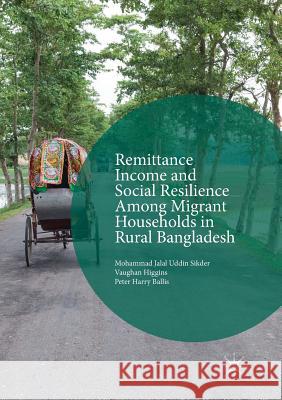Remittance Income and Social Resilience Among Migrant Households in Rural Bangladesh » książka
topmenu
Remittance Income and Social Resilience Among Migrant Households in Rural Bangladesh
ISBN-13: 9781349958719 / Angielski / Miękka / 2018 / 281 str.
Kategorie:
Kategorie BISAC:
Wydawca:
Palgrave MacMillan
Język:
Angielski
ISBN-13:
9781349958719
Rok wydania:
2018
Wydanie:
Softcover Repri
Ilość stron:
281
Waga:
0.36 kg
Wymiary:
21.01 x 14.81 x 1.63
Oprawa:
Miękka
Wolumenów:
01
Dodatkowe informacje:
Glosariusz/słownik
Wydanie ilustrowane
Wydanie ilustrowane











